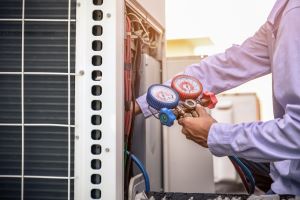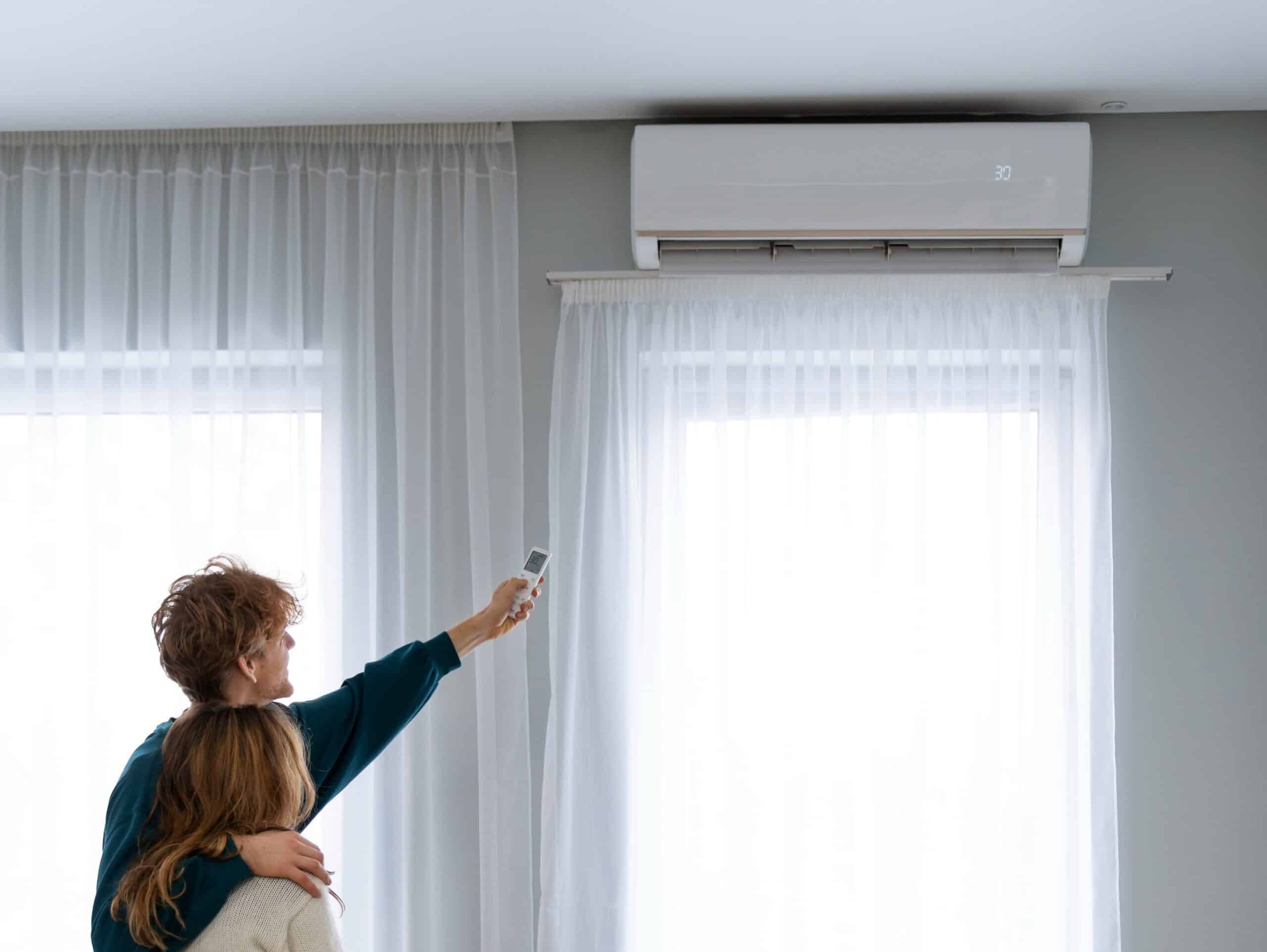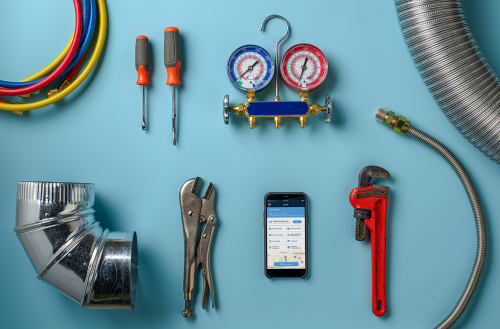Energy-Efficient Heating And Cooling Equipments to Save Money On Utility Expenses
As energy prices remain to increase, the importance of energy-efficient heating and cooling systems becomes significantly noticeable. These systems not just assure considerable financial savings on utility costs yet additionally add to an extra lasting future by minimizing power intake. With different alternatives readily available, consisting of geothermal warmth pumps and ductless mini-splits, home owners encounter a plethora of selections that can improve comfort and air quality. Nevertheless, comprehending the essential features and upkeep demands is important to taking full advantage of these advantages. What aspects should be prioritized when selecting the ideal system for your needs?
Benefits of Energy-Efficient Cooling And Heating Solutions
Energy-efficient a/c systems offer many benefits that extend beyond plain cost savings. One substantial benefit is the lowered environmental influence. By consuming less energy, these systems add to reduce greenhouse gas exhausts, aiding to fight climate change and advertise sustainability. This straightens with increasing societal needs for eco-friendly techniques in residential and industrial settings.
In addition, energy-efficient heating and cooling systems often offer improved convenience degrees. A number of these systems include advanced innovation that permits for much better temperature level control and improved air quality (DMAKS HVAC). This results in a healthier indoor environment, which is especially crucial for people with allergic reactions or breathing problems
Moreover, purchasing energy-efficient HVAC systems can boost home value. As more customers focus on energy performance, homes and buildings furnished with these systems might draw in higher quotes in the property market.
Sorts Of Energy-Efficient Cooling And Heating Options
Just how can homeowners and services pick the most appropriate energy-efficient HVAC choices for their requirements? The marketplace supplies a variety of energy-efficient HVAC systems, each designed to boost convenience while minimizing energy consumption.
One option is the variable cooling agent circulation (VRF) system, which effectively manages the temperature level in numerous zones within a building. This system adapts its refrigerant flow to match the desired temperature, bring about substantial power cost savings.
One more preferred selection is geothermal warmth pumps, which utilize the planet's secure temperature level to heat and trendy areas. By moving warm to and from the ground, these systems show outstanding efficiency, particularly in modest climates.
In addition, ductless mini-split systems provide an energy-efficient choice for homes lacking ductwork. These systems allow for zone-specific heating and cooling, minimizing power waste in empty locations.
Lastly, high-efficiency heating systems and ac system, with advanced SEER and AFUE scores, provide reliable climate control while consuming less energy than traditional models. By evaluating these options, property owners and services can select a cooling and heating system tailored to their specific requirements and energy performance goals.
Key Attributes to Take Into Consideration

Following, investigate the kind of compressor used in the system. DMAKS HVAC. Variable-speed compressors can adjust their output to match the home heating or cooling demand, resulting in boosted convenience and power financial savings compared to single-speed designs. Additionally, search for systems geared up with wise thermostats that offer programmable setups and remote access, allowing for better control over energy usage
An additional vital function is the system's air filtering capability. High-efficiency filters can improve indoor air quality and reduce power intake by making certain the system runs successfully. Furthermore, consider the sort of cooling agent made use of; modern-day systems usually utilize environmentally friendly refrigerants that have a lower environmental influence.
Finally, guarantee that the system is compatible with zoning modern technology, which enables tailored temperature level control in different locations of your home, boosting comfort while decreasing power usage.
Tips for Choosing the Right System


Following, think about energy efficiency scores, specifically the Seasonal Power Effectiveness Proportion (SEER) for cooling down systems and the Annual Fuel Application Performance (AFUE) for heater. Higher rankings indicate better effectiveness, which can result in significant savings on energy expenses over time.
In addition, examine the sort of cooling and heating system that finest suits your way of living and budget plan. Options include central air, ductless mini-splits, and heatpump, each with its own collection of advantages and downsides.
Don't forget the value of proper installment and sizing; an improperly sized system can lead to inadequacies and raised wear. Last but not least, consult with a professional a/c specialist to obtain skilled recommendations customized to your home's distinct requirements. This comprehensive technique will make sure that you pick an energy-efficient HVAC system that satisfies your demands and budget properly.
Maintenance for Optimal Effectiveness
As soon as the right HVAC system remains in area, ongoing maintenance ends up being crucial to ensuring ideal effectiveness and long life. A properly maintained system operates much more successfully, resulting in lower energy consumption and decreased utility costs. Normal inspections and tune-ups should be scheduled at the very least twice a year-- as soon as prior to the air conditioning period and as soon as before the heating period.

Property owners need to also be vigilant about checking their heating and cooling system's efficiency. Uncommon noises, changing temperatures, or increased energy bills can suggest underlying problems that need prompt interest. By attending to these issues immediately, homeowners can stop costly repair work and prolong the life-span of their systems.
Investing in an upkeep strategy with a certified specialist not just enhances effectiveness yet also offers assurance, knowing that the system is running at its best. DMAKS HVAC. Routine upkeep is consequently important for sustaining power effectiveness and lowering overall functional costs
Conclusion
In verdict, energy-efficient a/c systems provide a feasible service for reducing utility costs while enhancing convenience and air top quality. By including advanced technologies and options such as geothermal warm pumps and ductless mini-splits, residential or commercial property owners can accomplish considerable power financial savings and add to ecological sustainability. Mindful factor to consider of system attributes and recurring upkeep better makes certain optimum efficiency, making energy-efficient systems a prudent investment for both economic and environmental advantages.